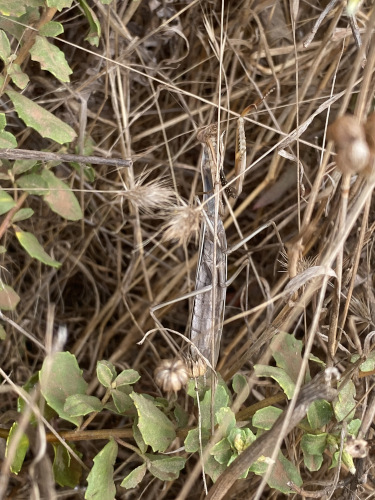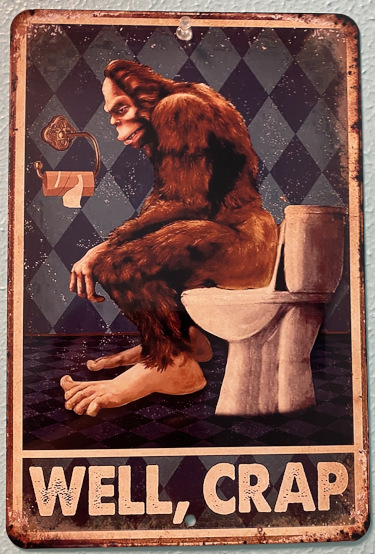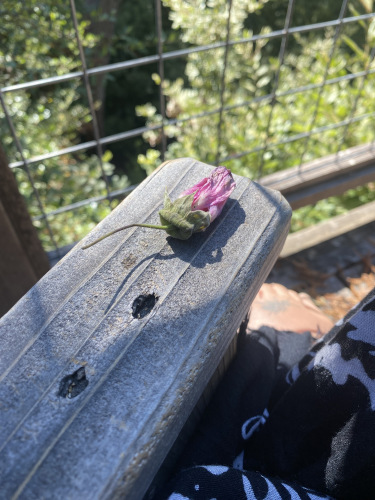If your lover lives in Hong Kong and cannot get to Chicago, it will be necessary for you to go to Hong Kong. Perhaps you will spend your life there, and never see Chicago again. And you will, I assure you, as long as space and time divide you from anyone you love, discover a great deal about shipping routes, airlines, earth quake, famine, disease, and war. And you will always know what time it is in Hong Kong, for you love someone who lives there. And love will simply have no choice but to go into battle with space and time and, furthermore, to win.
—James Baldwin, Nothing Personal
Even if we’re connected to family, if we feel disconnected from their land—not like a rejection but like a cutting-loose, like what was there for us is setting us free—it’s time to move on.
When we finally reach home, there’s nothing like waking up in our own bed to the call of one or more of our favorite people—say, ravens—with a full day ahead of doing whatever our spirits move us to do. A hint of fall might chill the air, with the Sun only just peeking through the trees; a neighbor’s dogs might run loose, almost causing us to run over them; the car might make a new rattling sound; our bodies might complain at the slog to haul things in; but then the ravens arrive, beside themselves with joy at seeing us, and all is right with the world.
Seeds are planted and come abloom generations, centuries, civilizations later, migrating across coteries and countries and continents.
—Maria Popova, Figuring
There is life’s work to be done. The place has withdrawn into emptiness or miasma in our absence: evidence of our effect when we’re present; confirmation that we’re appreciated here.

Something changed while we were gone. Things are off-kilter, differently than the way we were off-kilter before we arrived but part of the same shift. Something is preparing to happen.

It seems to me that the discord within humans and our activities must be birth pains. On some level, everybody knows the system must collapse, so we’re edgy; we and our machines wail in pain or emptiness or grief. The idea softens me to the noisemakers.
But I do remember the feeling I had as I closed the book: I knew, I just knew in my bones, that Minamata wasn’t really very far away, and that poison—like horror—doesn’t observe boundaries: it never stays in the pot. Just as in fairy tales, the poison gets out, it spreads; there is always a story in its wake.
. . . Where my childhood gaze was locked on Tomoko, my adult gaze now registers the presence of Tomoko’s mother. She, too, is naked and vulnerable in the bath with her daughter. Her expression is loving, concerned, peaceful, almost expectant, as if waiting for Tomoko to say something. Her downcast eyes are fixed on her daughter’s upturned face. . . .
Seeing how horror can arrive unbidden on the doorstep of the innocent was the moment I lost my innocence. As a middle-aged woman, my gaze has shifted from the teenager to her mother. I’ve realised that is it she who holds the key. Maybe this is the most we can expect from an image of horror: that it asks us not to look away. It demands that we stay with it, and that we allow it to do its work within us . . . .
—Joanna Pocock, “The Risk of Beauty”
The redwoods are molting like mad; the air has changed with the season and with me. Raven, intermittent, is in the same groove.
Sometimes when reading runes, I must deliver news of imminent difficult change. People can take it hard—understandably—that their current trajectory will soon become hazardous. I can only trust that foreknowledge will help—that they were drawn to a reading for a reason and that the empowerment and encouragement always present will be enough to see them through.
The nozzle at the Upper Terrace no longer gives water, so I carry my water container up the trail to the source-spring still trickling this late in the season, perhaps acknowledging my regular offerings. For a long moment, I sit as with a sacred presence as the water dribbles in. Then I lug the full jug back down to the Upper Terrace and, on a whim, check the shower. For some reason it works—which means the problem must be only in the line leading to the nozzle—so I rinse the layer of road-dust off my skin and exfoliate deeply with a scrubby glove.
All love bridges the immense expanse between lonelinesses, becomes the telescope that brings another life closer and, in consequence, also magnifies the significance of their entire world.
All love is light’s battle against the entropy continually inclining spacetime toward nothingness, against the hard fact that you will die, and I will die, and everyone we love will die, and what will survive of us are only shoreless seeds and stardust.
—Maria Popova, “The Light Between Us”
Smoke from a prescribed burn fills the air and begins to clear. My throat is scratchy from it. I take a nap, which is unusual. Afterward, I still feel strange, almost dizzy—lethargic, like my senses are pushing through a blanket of smoky fog—heavy, almost metallic, chairlocked. What’s it about? The change of season? The change of me? The boil-water notice that I’m ignoring as usual?

I forget what I felt moved to do, but that’s okay: no need to strain.
I don’t know where the jays went; they were just here. Sometimes they do this.
I drift until I come aground.

Death is not hidden from view here. It is not sanitized. And I may be a vegetarian but I find that refreshing and a good reminder to live life to the full. Death feeds life and informs everything we do. Death is sacred. Death should not be hidden from view as that robs people of key experiences in life.
—Imelda Almqvist, “Back in Greenland (Kalaallit Nunaat!)”
Here are the jays again: Speckle-Face; Butch, also known as Buzzcut (and possibly formerly Scruffy-Head, a juvenile who still had baby feathers sticking up here and there); Shrieker, the last juvenile who can’t seem to help the occasional loud outburst (and accordingly loses chances at peanuts); and Shy Mama, who hangs back quietly and patiently until the others are off with their peanuts (and then I throw her a peanut so she doesn’t have to brave a close approach to me). I feel Shy Mama’s peaceful, watchful presence even when I can’t distinguish her from a couple of others who have charcoal-gray—rather than black—heads. One jay pauses for a long moment, peanut in beak, meeting my gaze of admiration.
As late dusk transitions to early night, I’m a confusion of opposites: peaceful and churning, lonely and content, soothed by crickets and agitated by vague unrest, electric and worn out, fearful and curiously hopeful, grieving and fulfilled. Crickets singing their hearts out, in fact, is the only sound, which—ah!—sing the warm heaviness of sleep up from behind my eyes. Whether it overtakes me soon or later, nothing pressing looms at the end of the night. I am free. The smoke has cleared, and I sink into blankets.
My nocturnal mind was different. Why did I feel both more fearful and more tranquil? Why was I more inclined to fret and fume? To behave with greater recklessness? Why did images, ideas, memories so often collide in a curious collage of colour and novelty? Writing problems I encountered during the day found solutions as I ambled round the darkened house, peering at the night sky from every passing window. In the middle of sleepless nights, my mind felt less logical, less methodical. My grip on assessing and prioritising less assured. But in return, my inner critic fell silent. Ideas and thoughts meandered, melded and merged. I refused to pass judgment, but in the morning, when I looked afresh at whatever I’d written in the night, I often liked it.
. . . At night, it seems, the filter between us and the outside world is fractionally thinner and frailer.
. . . I too noticed how, awake at night, I often felt more receptive, compassionate and open-minded. Things I might have brushed aside or considered unduly esoteric by day took on a new poignancy and possibility.
—Annabel Abbs, “Spinning the Night Self”
